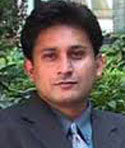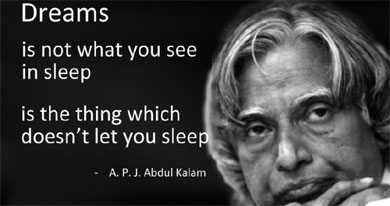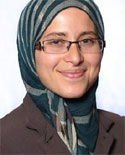By Louay Fatoohi
30 July, 2015
Article Reproduced on New Age Islam from the Author’s Blog by His Permission
The term “Hadith” is one of the most used Islamic terms by both Muslims and non-Muslims. But despite its importance, there is often a good deal of ambiguity about what it exactly means. It is often used inconsistently and inaccurately. This article aims at clarifying the exact meaning of this term.
The noun “Hadith” occurs in the Qur’an twenty three times (4.42, 4.78, 4.87, 4.140, 6.68, 7.185, 12.111, 18.6, 20.9, 31.6, 33.53, 39.23, 45.6, 51.24, 52.34, 53.59, 56.81, 66.3, 68.44, 77.50, 79.15, 85.17, 88.1). Its plural form “Ahadith” is found five times (12.6, 12.21, 12.101, 23.44, and 34.19). In these twenty eight verses, the term broadly means “narrative,” “story,” “speech,” or “news,” which may or may not be religious. For instance, God describes the Qur’an as “the best of Hadith” (39.23), refers to the story of Moses as the “Hadith of Moses” (20.9), and says about nations that He destroyed for rejecting the messengers He sent to them “We have made them Ahadith” (23.44). Other variations of this term occur in another eight Qur’anic verses (2.76, 18.70, 20.113, 21.2, 26.5, 65.1, 93.11, 99.4).
Of the thirty six occurrences of the term “Hadith”, only one is linked to something specific to Prophet Muhammad. This is verse 93.11 where the Prophet is commanded by God to speak about His favor to him, i.e. making him a Prophet: “As for the favor of your Lord, Hadith (speak about).” But even in this solitary instance, the verb “Hadith” is used in its generic meaning. Indeed, the verb is used in another verse to refer to the speech of disbelievers (2.76).
But the term “Hadith” has acquired in Islamic literature the very specific meaning of reports about what the Prophet said, did, approved, and disapproved of, explicitly or implicitly. Indeed, Hadith is considered as the main source of the “Sunna” or “customary behavior” of the Prophet. The other source is the “Sira” or “biography” of the Prophet. It is this technical meaning of the term “Hadith” that the rest of this article focuses on.
Any Hadith consists of two parts, the first is known as “Isnad” or “Sanad,” and the second is known as “Matn.” The generic meaning of “Isnad,” whose plural is “Asanid”, is “support” or “foundation.” But in the terminology of Hadith it refers to the chain of transmitters of the Hadith. These narrators are called “Isnad” because they provide the “support” for the historicity of the Hadith.
Lexically, “Matn” denotes the visible part of something. In the technical language of Islamic literature, “Matn” denotes the saying, behavior, or incident that is being reported by the chain of transmitters. To illustrate these concepts, this is a Hadith about using the visibility of the new moon to determine the beginning and the end of the fasting month of Ramadan:
Yahya bin Bukair told us on that al-Laith said, that ‘Uqail said, that ibn Shihab said, that Salim said, that ibn ‘Umar said that he heard the Messenger of Allah say: “When you see it start your fast and when you see it break your fast. If it was cloudy, make an estimate [for the start of end of the fasting month].” (Bukhari, 1900)
The chain of transmission, or isnad, is marked in red whereas what is being reported, or Matn, is in green.
Hadith narratives at times quote the Prophet directly:
Sa‘id bin Yahya bin Sa‘id al-Qurashi told us that his father said, that Abu Burda bin Abdullah bin Abi Burda said, that Abi Burda said, that Abi Musa said that people asked: “O Messenger of Allah! Whose practice of Islam is the best?” He said: “The one who does not cause harm to Muslims by his tongue or hand.” (Bukhari, 11)
A Hadith may not quote the Prophet directly but report what he was heard saying or seen doing:
‘Abda bin ‘Abdullah told us that ‘Abdul Samad said, that ‘Abdullah bin al-Muthanna said, that Thumama bin ‘Abdullah said, that Anas said about the Prophet that when he said something he repeated it three times until it was fully understood and that when he encountered people he greeted them three times. (Bukhari, 95)
A Hadith may show the Prophet’s tacit approval of something, as in this example in which the Messenger does not stop Muslims from keeping his cut hair:
Muhammad bin Abdul Rahim told us that Sa‘id bin Sulaiman said, that ‘Abbad said, that ibn ‘Awn said, that ibn Sirin said, that Anas said that when the Messenger of Allah had his hair cut Abu Talha was the first to take his hair. (Bukhari, 171)
But even in Islamic literature the term “Hadith” has been used in a broader sense. Some of the reports found in the collections of Hadith detail things that “Sahaba (Companions)” of the Prophet said or did, rather than the Messenger himself. At times, this may be a statement reflecting the view of a Companion:
‘Ali said: “Speak to people about what they know. Do you want them to accuse Allah and His Messenger of lying?” It was ‘Ubaidullah bin Musa on the authority of Ma‘ruf bin Kharrabudh, on the authority of Abil Tufail, on the authority of ‘Ali [who reported this] (Bukhari, 127)
The implication of such Hadiths is that the teaching conveyed by the Companion reflects what he learned from the Prophet.
It should be noted, however, that the term “Companion” is used rather loosely by scholars. While some individuals, such as ‘Ali bin Abi Talib, who transmitted the Hadith above, spent many years in the company of the Prophet, others are called Companions for only seeing the Prophet! For instance, in his book al-Isaba fi Ma‘rifat al-Sahaba (Identifying the Companions Correctly), ibn Hajar al-‘Asqalani (d. 852/1448) calls “Companion” any “Muslim who met the Prophet, believed in him, and died while still a believer.”
Another interesting feature of Hadith 127 is that its isnad follows the Matn, which is the opposite of the normal situation.
The following Hadith reports a statement by a Companion rather than something the Prophet said, but because it is about a pledge given by that Companion to the Prophet, the implication is that the Companion’s words and actions were approved by the Prophet:
Musaddad told us that Yahya said, that Isma‘il said, that Qais bin Abi Hazim said, that Jarir bin ‘Abdullah said: “I pledged to the Messenger of Allah that I will perform the prayer, pay the obligatory alms, and give good advice to every Muslim.” (Bukhari, 57)
In the text of Hadiths, variations of “Hadith” are also used in the generic sense of this term, i.e. not referring specifically to sayings of the Prophet. For instance, the term “Haddathana (told us)” is frequently used with individuals who are quoted as the source of Hadith. In fact, all of the Hadiths quoted above use the term “Haddathana (told us)” in reference to at least one of the narrators.
Another feature of the Hadith literature worth noting is that a Hadith may exist in a number of different wordings and different chains of transmission. For example, this Hadith is clearly a different version of the Hadith above:
Ya‘qub bin Ibrahim told us that Hushaim said, that Sayyar said, that al-Sha‘bi said, that Jarir bin ‘Abdullah said: “I pledged to the Prophet listening and obeying, so he taught me to add ‘as much as I can, and to give good advice to every Muslim’” (Bukhari, 7402)
Significantly, the last part of the statement that Hadith 57 attributes to Jarir appears in Hadith 7402 as something the Prophet said.
Unlike the Qur’an, whose authenticity is accepted by all Muslims, Ahadith may or may not be authentic. Muslim denominations differ on which Hadiths are authentic and which are not. Sunni Muslims have particularly high regard for the two Hadith collections of Bukhari (194-256/810-870) and his student Muslim (206-261/821-875). They call them “Sahih (correct)” to reflect their almost complete confidence that they contain authentic Hadiths only. Other highly regarded Hadith collections are those of Abu Dawud (202-275/817-888), Ibn Majah (209-273/824-887), al-Tirmidhi (209-279/824-892), and al-Nasa’i (215-303 / 830-915). All six were compiled as late as about two and a half centuries after the Prophet, although they relied on earlier sources.
Shia scholars do not have as much confidence in those sources, in particular as they contain many narratives attributed to Companions of the Prophet that the Shais do not trust because they think they showed animosity toward ‘Ali bin Abi Talib — the Prophet’s close Companion and cousin, fourth caliph, and the first Shia imam. The Shias rely on other compilations of Hadith and the accounts related through their imams. One of the most respected Hadith books by the Shias is al-Kafi by Muhammad al-Kulaini (250-329/864-940).
While there are clear differences between Sunni and Shia Muslims in their assessment of the authenticity of Hadith collections, differences about Hadith are not confined to the Sunni/Shia divide. Scholars within any denomination have also differed on whether certain Hadiths are genuine or not. Yet because of the importance of Hadith as the main source of the Sunna, which is considered the second source of legislation in Islam, Muslim scholars have developed a complex system for critiquing Hadiths. This system classifies Hadiths into a number of different categories of historical reliability. The classification system aims to describe the likelihood of each Hadith being authentic, i.e. how likely that the Hadith accurately describes a historical event. There are many categories that range from the “Sahih (correct/authentic)” and “Hasan (agreeable)” to the “dha‘if (weak)” and “Maudu‘ (forged).”
The Hadith classification system focuses almost exclusively on the reliability of the chain of transmission. For instance, if one of the narrators in the Isnad lacked credibility or is known to have lied, then that would discredit the Hadith. Similarly, if the Hadith was originally reported on the authority of someone who did not meet the Prophet, then that would put the Hadith in a lower category, and so on.
This near complete concentration of Hadith criticism on the chain of transmission reflects the scholars’ view that they could not tell whether a reported event or saying by the Prophet is likely to have happened on the basis of its details, i.e. Matn. They could not claim to have the ability to judge, for instance, whether the Prophet could have given a particular instruction or not, because that might implicitly be the equivalent of claiming a level of knowledge that is comparable to that of the Prophet. There are some Hadiths that were challenged on the basis of their Matns despite the reliability of their chains of transmission — for instance, if they were found to be in conflict with other accepted Hadiths — but these are relatively small in number. Significantly, in these cases, scholars are being “forced” to consider the Matn, which is a completely different approach from giving Matn at least as important a position as Isnad in Hadith criticism.
In my view, relying almost completely on the credibility of the chain or transmitters and not examining the substance of the Hadith to take a view on its credibility is an extreme position that is highly insufficient and likely to mislead:
· First, examining the chain of transmission can at times allow the scholar to form a firm view on its reliability, but this is not always the case. It is often an extremely difficult task that is fraught with difficulties, some of which are insurmountable. Let’s take a Hadith whose narrators are considered to be reliable and who are known to have met each other, so they could have heard the Matn of the Hadith from each other. It is still perfectly possible that the Matn of this Hadith might be unhistorical. This could be the result of an innocent mistake by one of the narrators or outright forgery. The older any such mistake or forgery, the more difficult it is to spot it by later scholars.
· Second, the Qur’an has a wealth of information and principles that can be used to assess the credibility of the Matn of any Hadith, so one is not relying completely on their own judgment. The Qur’an, after all, is the word of God, which can be used to examine the reliability and accuracy of any other statement, including what people have attributed to the Prophet.
· Third, one can reject the historicity of any Hadith whose Matn looks illogical, unreasonable or absurd. The status of Muhammad as the Messenger of God would rule out the possibility of him behaving in the way some Hadiths claim or making the kind of statements that are found in some Hadith reports.
The science of Hadith criticism that Muslim scholars have meticulously developed over the centuries has provided scrutiny of the numerous Hadiths. But inevitable limitations in this human system mean complete submission to it was always going to be the wrong approach. The Qur’an is indispensable when assessing the reliability of the Matn of the Hadith. Similarly, any Hadith that attributes an unreasonable or absurd statement or behavior to the Prophet should be rejected regardless of the chain of transmission attached to it. Hadith criticism over-relies on the chain of transmission to the point of making the Matn almost irrelevant. This, in my view, has been a serious flaw in Hadith criticism, which has resulted in the acceptance of a large number of inauthentic Hadiths.
Source: http://www.quranicstudies.com/prophet-muhammad/the-meaning-of-Hadith/
Copyright © 2011 Louay Fatoohi



















 Moderate Islamist here
Moderate Islamist here

